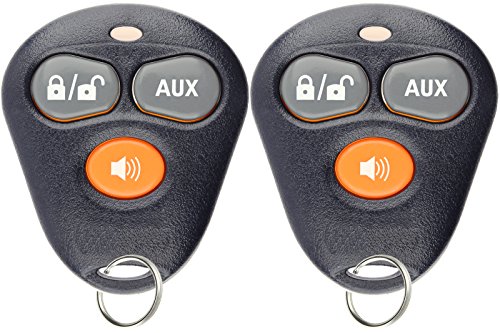
Aftermarket Dewalt batteries are gaining popularity among power and hand tool users worldwide. Buyers prefer aftermarket batteries due to their cost-effectiveness, which offers better solutions than OEM batteries. However, choosing aftermarket Dewalt batteries is not as simple as choosing OEM batteries. This article provides valuable tips to consider when selecting aftermarket Dewalt batteries.
Battery Compatibility
Compatibility is the first thing to consider before buying an aftermarket Dewalt battery. Dewalt offers a range of battery voltages and amps for its power and hand tools. Therefore, the aftermarket Dewalt battery's voltage and amps must match the tool's power requirements. A mismatch of voltage and amperage can result in damaging your power tool or the aftermarket Dewalt batteries. Therefore, ensure you check the battery's compatibility before making a purchase.
Battery Capacity
Battery capacity refers to the amount of charge an aftermarket Dewalt battery can store. The higher the battery capacity, the longer the battery will last during use. When choosing an aftermarket Dewalt battery, it's crucial to consider the battery's capacity. However, high-capacity batteries tend to be bulkier and more expensive. Therefore, it's essential to weigh your needs against your budget to select the appropriate aftermarket Dewalt battery capacity.
Battery Lifespan
Battery lifespan refers to the total number of times you can charge and discharge an aftermarket Dewalt battery. Every battery has a shelf life and a cycle life. The shelf life refers to the length of time an aftermarket Dewalt battery can last without charging. The cycle life refers to the number of times an aftermarket Dewalt battery can be charged and discharged before it starts losing its original capacity.
Aftermarket batteries tend to have a shorter lifespan than OEM batteries due to their manufacturing process. Therefore, when choosing an aftermarket Dewalt battery, it's vital to consider its lifespan. A battery with a higher cycle life means it will last longer and save you more money in the long run.
Battery Chemistry
Dewalt uses various battery chemistries in its power and hand tools, including Li-ion, NiCd, and NiMH. Li-ion batteries are the most common due to their high energy density, long lifespan, and low maintenance. NiCd and NiMH batteries are less common due to their lower energy density but are relatively cheaper than Li-ion batteries. When choosing an aftermarket Dewalt battery, it's critical to consider the battery's chemistry. However, be cautious of aftermarket Dewalt batteries that claim to have a specific chemistry but do not match the OEM specifications.
Battery Safety
Safety is a crucial factor when choosing an aftermarket Dewalt battery. Poorly made aftermarket batteries can cause damage or even bodily harm due to their inferior quality. Therefore, it's essential to buy aftermarket Dewalt batteries from reputable brands that have passed global safety certifications like FCC, CE and RoHS. Additionally, look for aftermarket Dewalt batteries that have built-in protection circuits that offer overcharge, discharge, and short-circuit protection to improve safety and reliability.
Battery Brand Reputation
Aftermarket Dewalt batteries are available in various brands, some reputable and some not. When choosing an aftermarket Dewalt battery, it's crucial to consider the brand reputation. A reputable brand offers reliable, high performing and long-lasting aftermarket batteries that match the OEM specifications. Conversely, a low-quality brand offers cheap alternatives that may compromise your power tool's performance and safety, resulting in a damaged tool, bodily harm, or both. Therefore, take note of the brand reputation and purchase from well-known brands that have a good track record of producing high-quality aftermarket Dewalt batteries.
Warranty and Return Policy
Lastly, when choosing an aftermarket Dewalt battery, it's essential to consider the warranty and return policy. Reputable aftermarket Dewalt battery brands offer a warranty to cover your purchase against defects and issues that may arise within the warranty period. Additionally, they have a clear return policy that outlines the process to follow if you're not satisfied with the product. Before purchasing, read and understand the warranty and return policies to ensure you're getting a good deal and that you're covered in case of a malfunction.
Conclusion
Buying an aftermarket Dewalt battery requires some research to ensure you get the right product that meets your needs. Choose a battery that is compatible with your power tool, has appropriate capacity, has a long lifespan, uses the right chemistry, is safe and reliable, and comes from a reputable brand with a good warranty and return policy. By following these tips, you will make an informed decision and avoid losing money on poor performing aftermarket Dewalt batteries.
Related Topics You Might Like






















